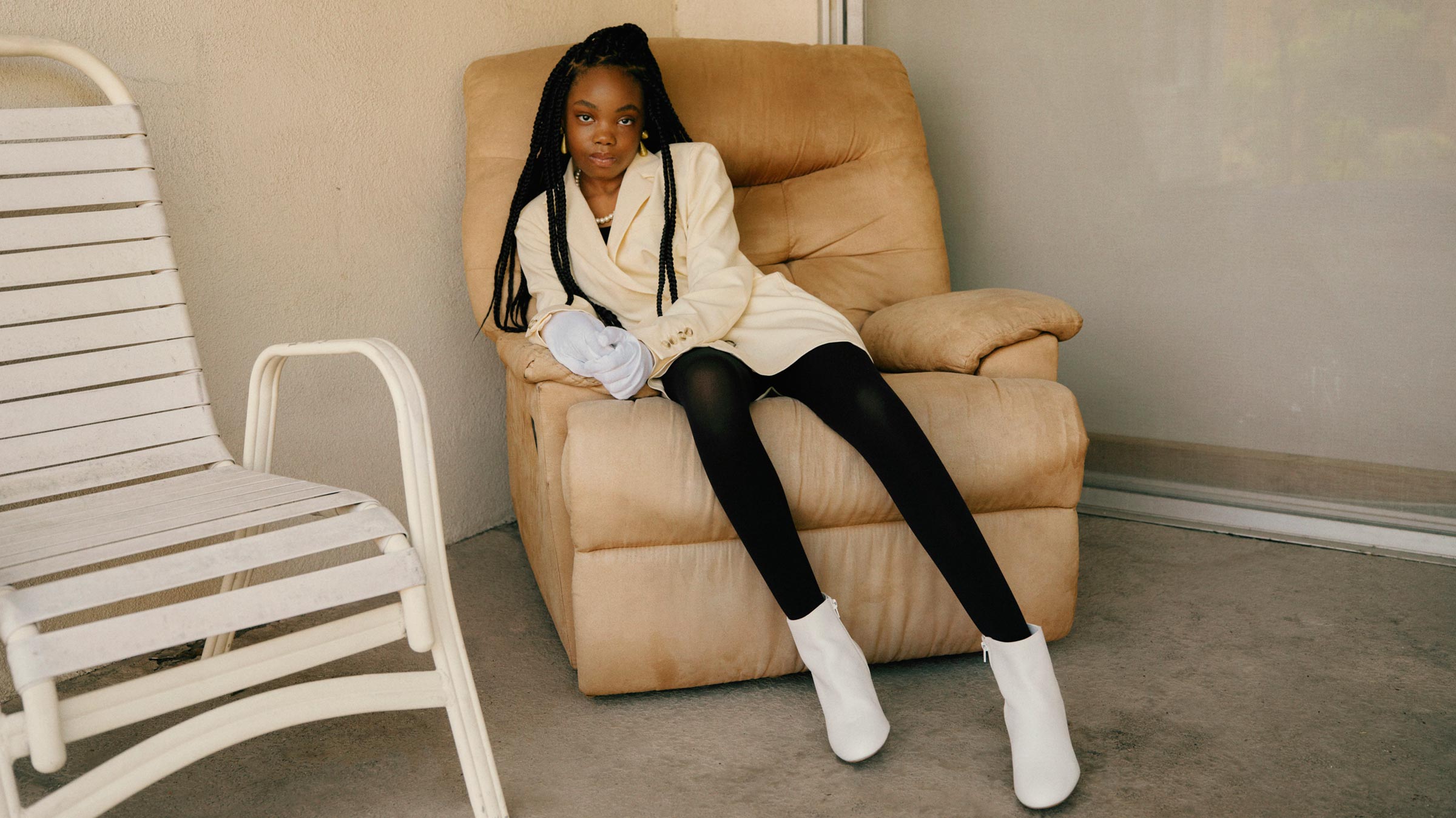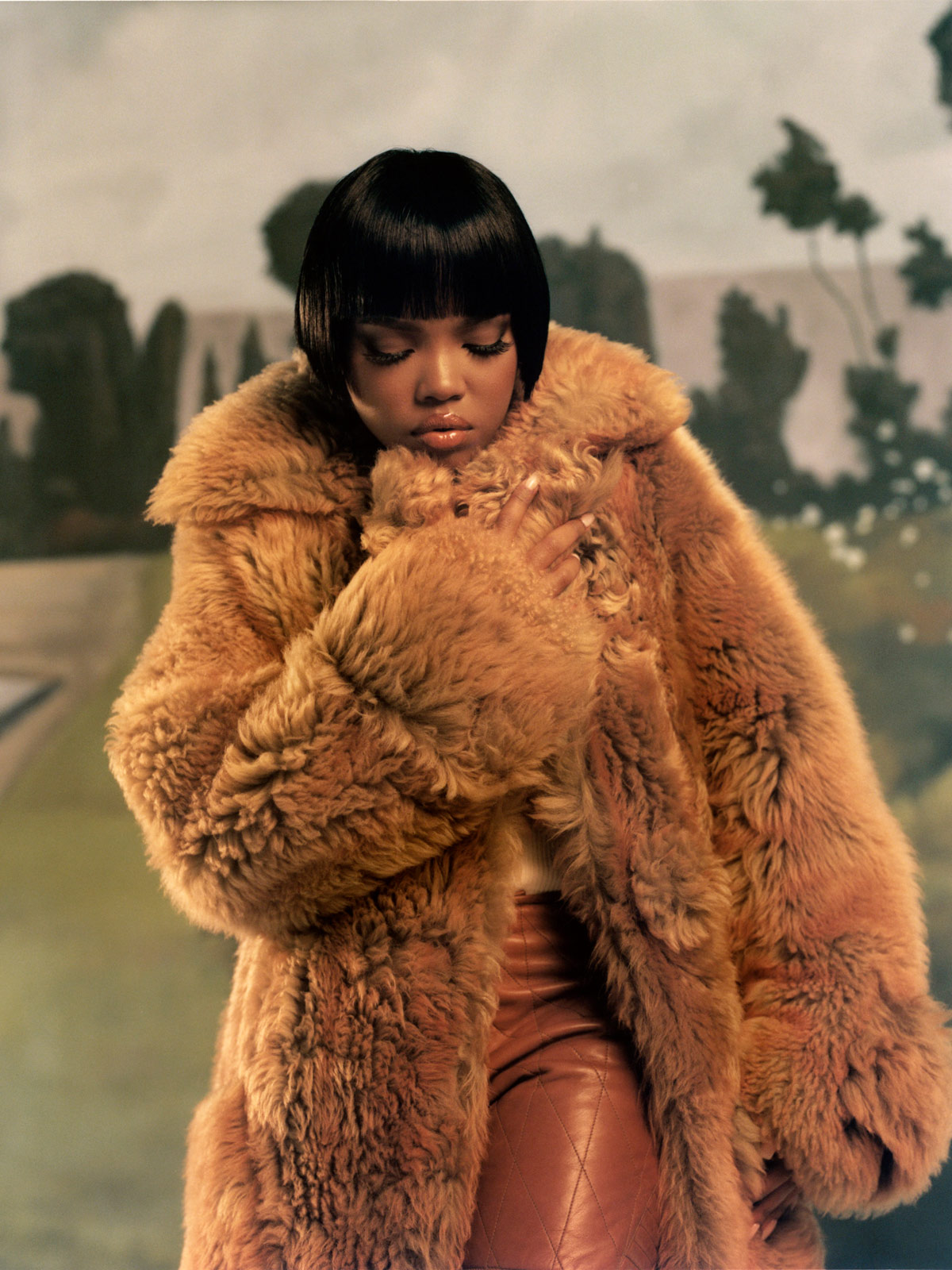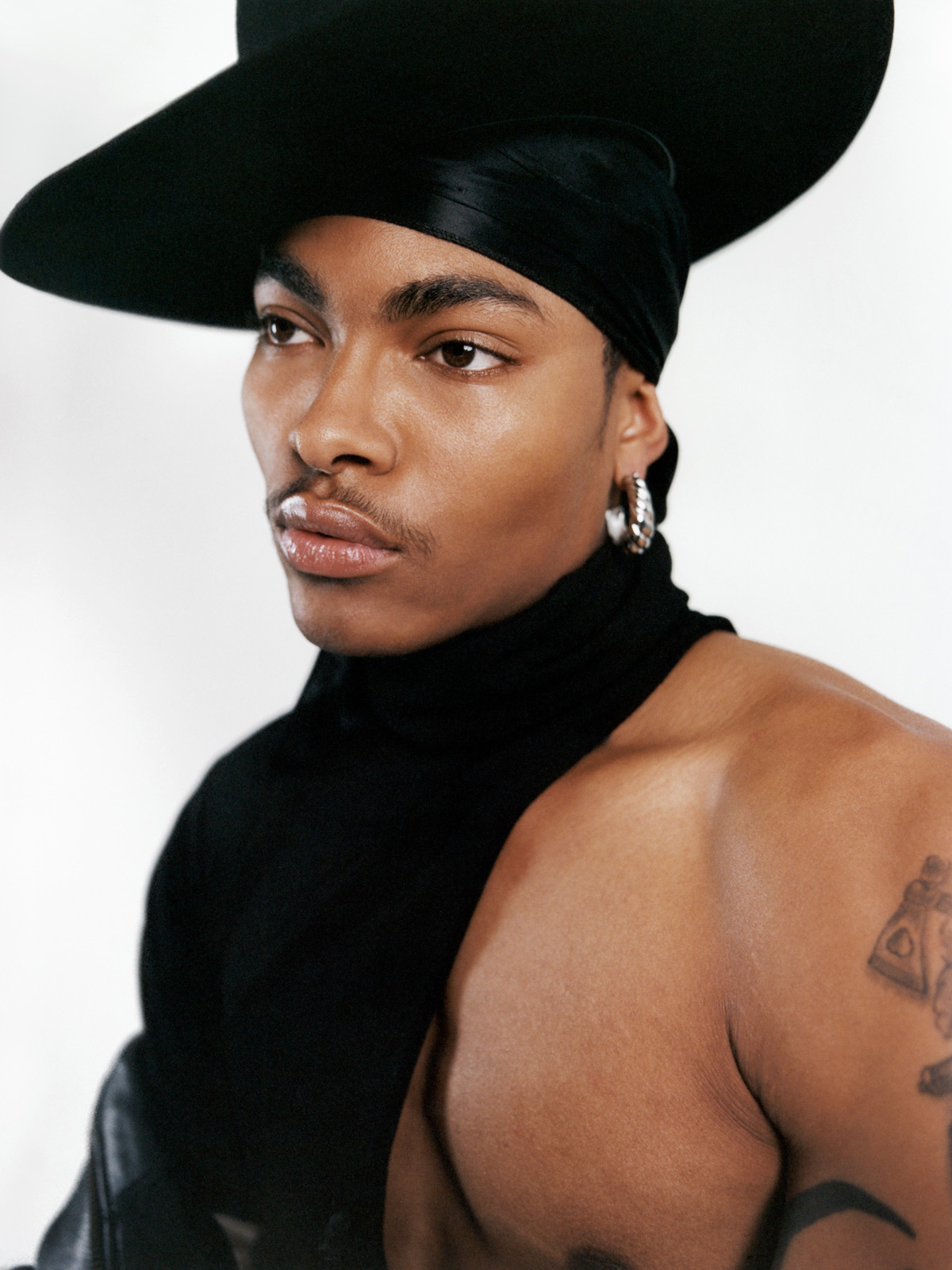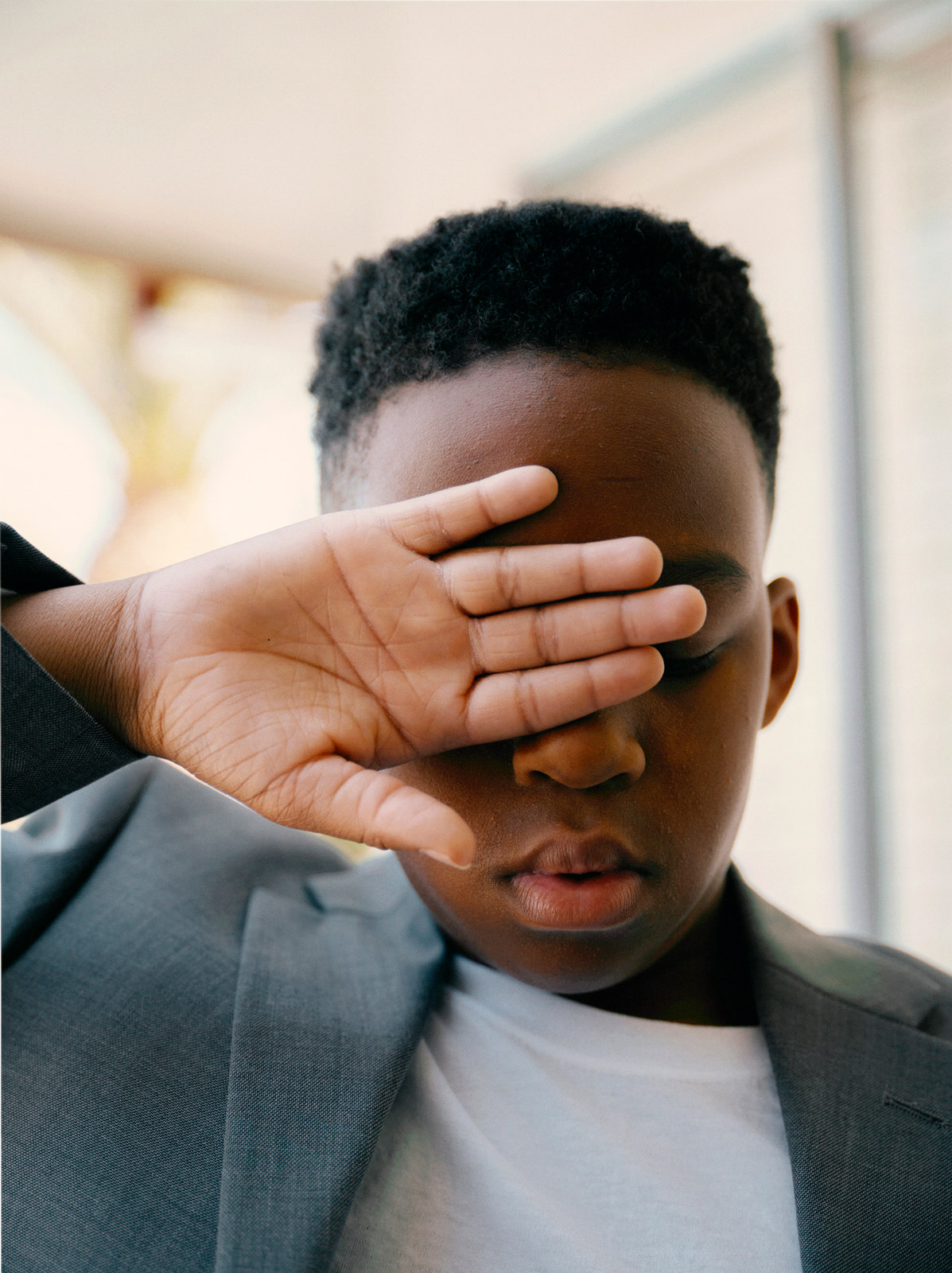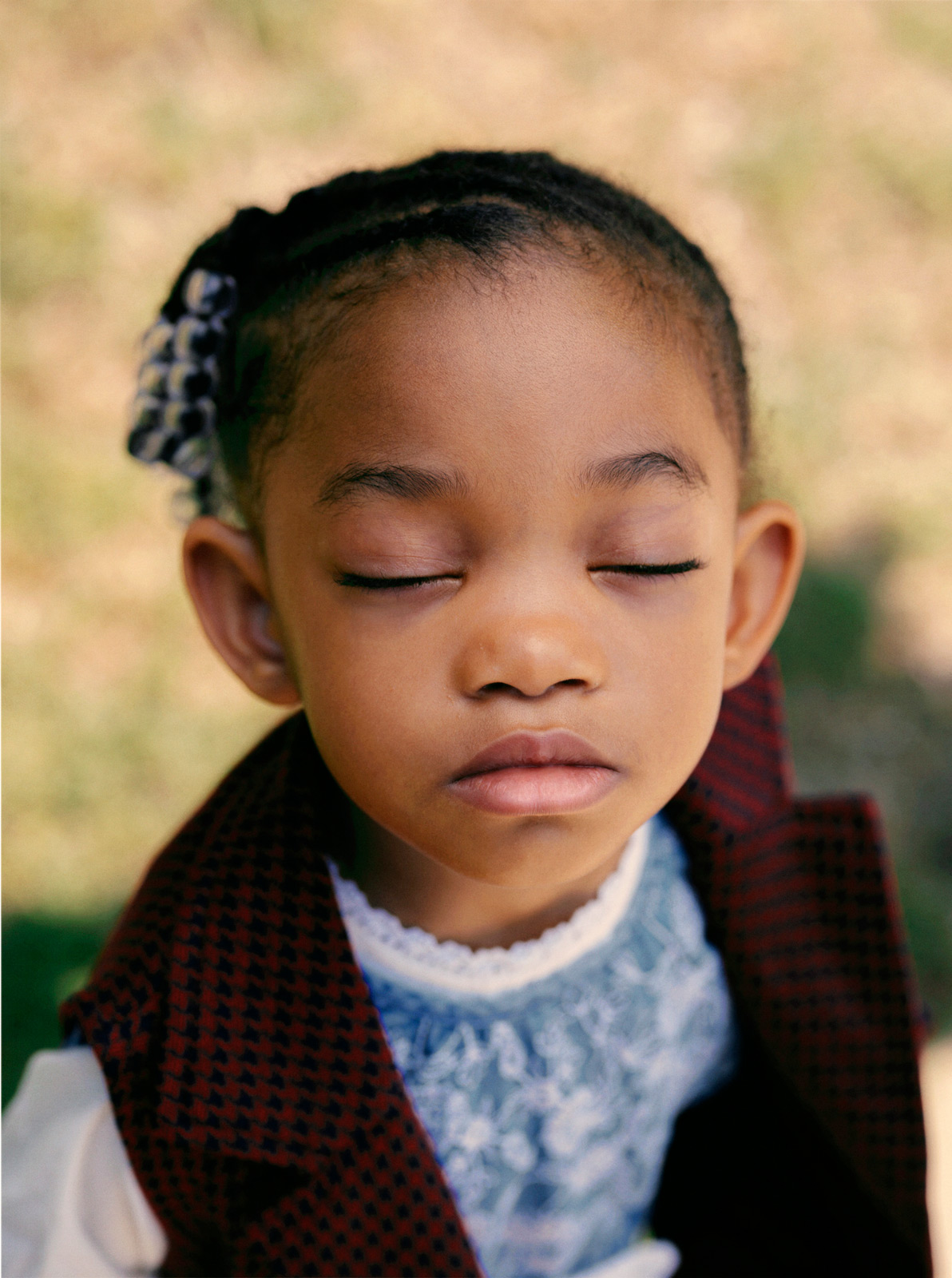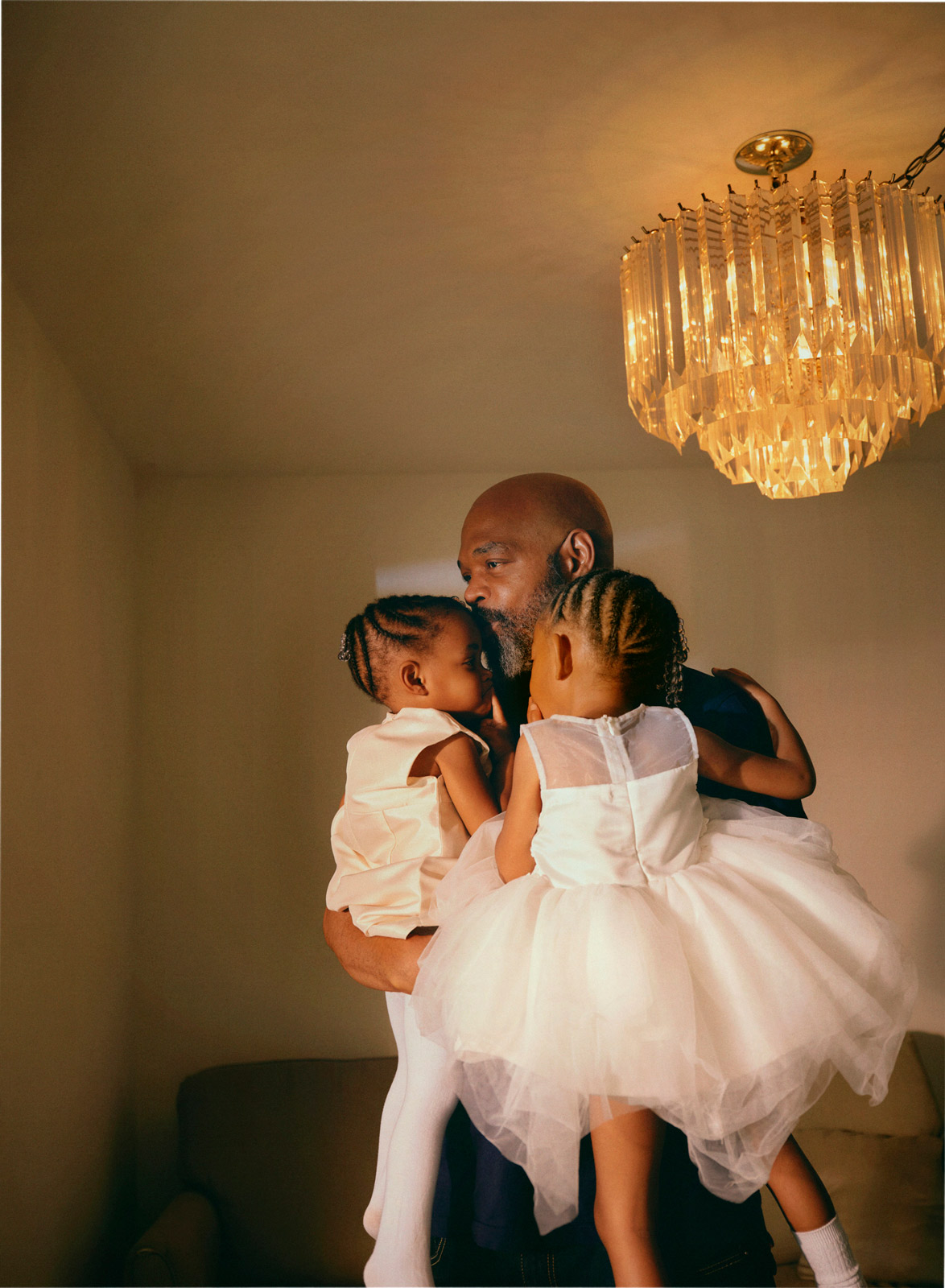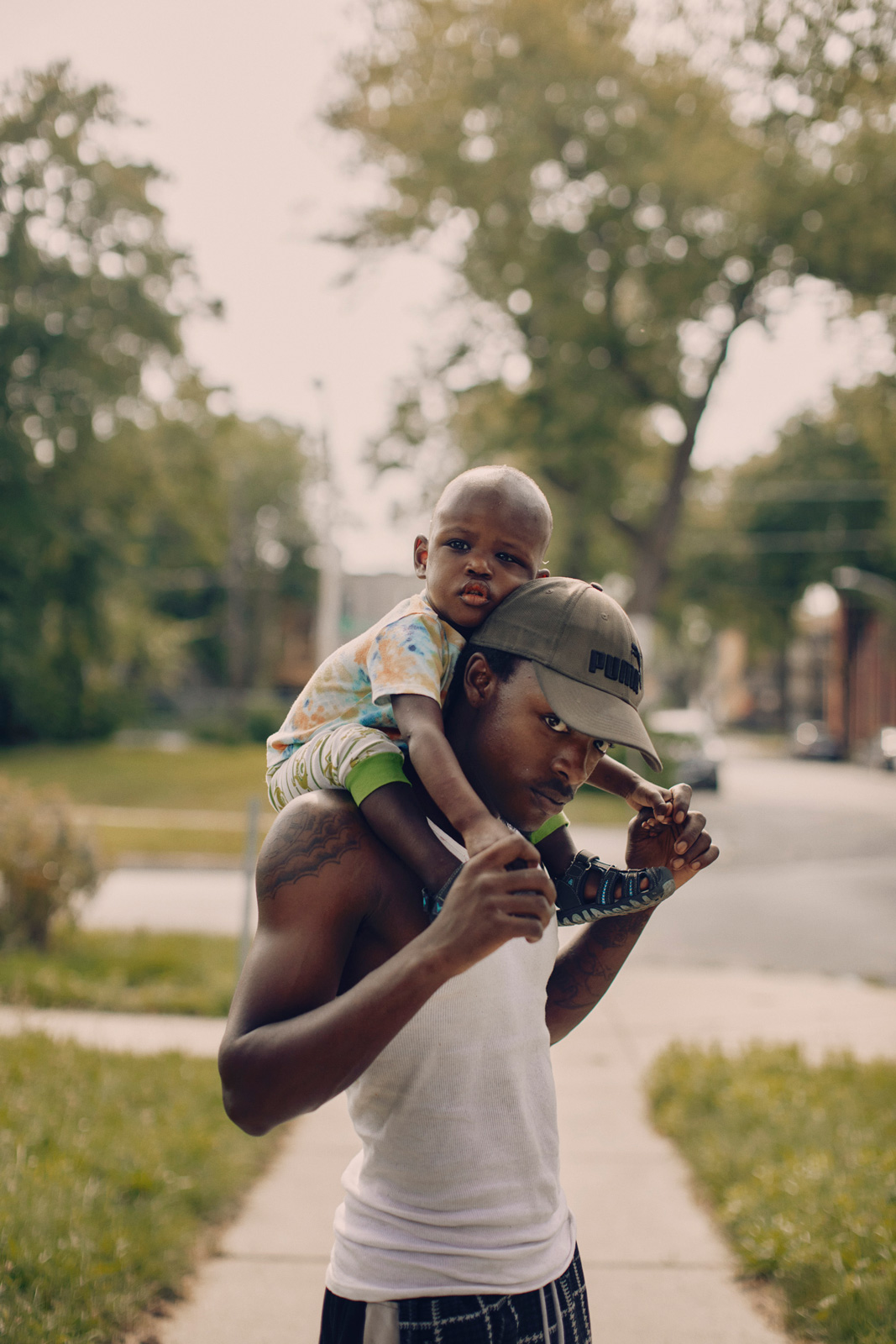The photographer’s latest show at SN37 Gallery centers Black heritage with a combination of editorial images and intimate family portraits
Love echoes through every inch of Micaiah Carter’s new exhibition American Black Beauty Vol. 1. The esteemed photographer has captured nearly everyone, from the cast of Euphoria to Pharrell Williams, but since the loss of his father—a Vietnam veteran who died of prostate cancer in 2021—Carter has begun to view his work as therapy. The desire to see and be seen exists at the root of his project, which was born from his father’s own documentation of ’70s Black America, and the longing for reconnection to family through mourning and reminiscence.
Set in SN37 Gallery at the Manhattan Seaport, the show combines some of Carter’s editorial work with more intimate portraits of his family, as well as his father’s photography and home videos. Carter invites us into his world—from his lineage and past, to the full recognition of his present. American Black Beauty Vol. 1 is a celebration of Blackness, carried on through generations.
Ryan Williams: Congratulations on everything—on the show, on the Euphoria editorial. You’re everywhere right now.
I want to start by asking what American Black Beauty means to you, in your own words?
Micaiah Carter: It’s home. It’s bringing my house to New York. That’s what it feels like to me. I wanted [viewers] to feel like they were at home.
Ryan: Speaking of home, family is a big theme throughout the exhibition. More specifically, the show and your new work have grown out of the loss of your father. How has photography helped you process that loss?
Micaiah: Photography just helped me fall back in love with my passion, I guess. Working so commercially for the last six years, I think I lost touch with how therapeutic it can be—work relating to something that’s not for anything besides myself. I wanted to create something so I could kind of get these feelings out.
Ryan: What did the elements like your father’s documentation of his time in the Air Force and your family roots in the South bring to the show?
Micaiah: Both brought a sense of nostalgia. They also brought a sense of relatability, across all boards—the print work and the video stuff that I had, as well. I think those [components] combined made these parallels and these crosses that were really interesting—especially at the opening, with people coming up to me and telling me about things I had in my house that they had in theirs.
I think that’s what I wanted from the show: to really tell the story of American Black Beauty, and [share a] sense of what that means. From going to church, to family time at home, vacations. Those elements showcased what it’s like, basically, or what it was like for me.
Ryan: Home videos and old photos are something that we all have in common. And even looking at someone else’s, you still feel that sense of home in them, even though they don’t belong to you. You can put yourself into that place.
What draws you to look to the past to create for the future?
Micaiah: I’ve always been inspired by my childhood and the area that I grew up in. My dad was a big advocate for showcasing the past, and understanding it for the future. So I think that’s kind of where I got it from, especially with the family album. I realized, your heritage and [individual past]—those [two things] colliding help me want to create for the future. It’s important. Mixing those together to propel myself—it’s a clear vision.
Ryan: They’re both parts of you. They make up you as a whole.
Micaiah: Yes, exactly.
Ryan: You speak about American Black Beauty alluding to this desire to see beauty in yourself. The lack of representation of the Black community, and specifically of Black joy, has come to the forefront over the past couple of years. Are there any artists, or works of any medium, that make you feel seen or represented?
“I wanted people to get a sense of family. That was the main goal.”
Micaiah: This photojournalist, John H. White. He photographed in Chicago in low-income neighborhoods. I connected with his work because of its humanity. He didn’t photograph [his subjects] in a way that was showcasing their poverty. He was showcasing what they had. The smiles on their faces. That was something that I really was drawn towards. He’s a big inspiration for me.
For visuals, John Singleton, who directed Baby Boy and Boyz n the Hood. He’s an amazing example of someone who showcases [his subjects’ humanity], and really tells American stories. He was so authentic with that.
Ryan: Your work has this warmth and richness to it. Whether you’re shooting an editorial or your family members, the subject seems to be treated with a sensitivity, but also a significance. Do you shoot editorials and more intimate photos the same way? Or is there a distinct process with each?
Micaiah: There is a distinct process, because everyone I’ve shot I have specific inspiration for. I take that and try to elevate it, or I try to showcase them in a way that has never been seen before—but keeping it authentic to me. I go into everything sensitively, because I just want to make sure that it’s uplifting, and moving us forward, instead of something that feels redundant.
Ryan: How did you want your personal photos to converse with the editorial shots?
Micaiah: I wanted people to get a sense of family. That was the main goal. I had the editorial parts of the show, which I wanted to kind of allude to my dad’s inspiration—the sense of style, ’70s fashion and glamor. I wanted to lift it up. The second level of the show showcases stepping out, and what that looks like for Black Americans in an artistic way.
Ryan: How do you think representation in art can uplift communities and create a better future?
Micaiah: It just gives context. It gives context for people to see themselves in everyday life, and I think that’s the most important thing.
Ryan: It feels like you’re opening a door to what Blackness can be, rather than defining it yourself.
What do you want people to take most from this show? What do you want to leave people with?
Micaiah: I want people to feel like it’s a home away from home. It’s an expansive thing—the connectivity for Black people, and for all people to really see an open perspective of that. Specifically with children, you get to see that sense of innocence and openness. That’s something that I wanted to come through the whole show.
Ryan: What are you looking forward to in the future?
Micaiah: American Black Beauty Vol. 2.
Ryan: Yeah, I guess it’s in the title—Vol. 1. You put it there for a reason.
Micaiah: That’s the next couple of months. I’m excited for people to see the continuation of this project.


